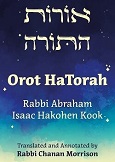
The central daily offering in the Temple service was the Tamid, an offering of two lambs. One lamb was offered just after daybreak, at the start of the day’s service; the second lamb was offered in the afternoon, at its conclusion. The sheep were purchased using half-shekel coins collected from the entire Jewish people.
Why was a small sheep used for the Tamid offering, and not a more impressive offering? And why use only young animals, less than a year old?1
Bulls and Sheep
Some Temple offerings were brought from bulls, while others from sheep. A bull is usually a peaceful animal and a productive worker. But on occasion a bull can suddenly transform itself into a terrifying force of danger and destruction. For this reason, a bull is an appropriate offering for those seeking to atone for a life that has tragically fallen into a grave state of ruin and disaster.
Sheep, on the other hand, provide a suitable offering when the problem is not one of destructive behavior, but rather a general spiritual decline and indulgence in materialism. The peaceful but mundane sheep are a fitting metaphor for our daily struggle against the negative influence of involvement in worldly matters.
With regard to the Jewish people as a whole, one cannot speak of widespread corruption and moral decay. The Tamid offering, purchased with funds from the entire nation, does not atone for the extreme vices of evil individuals. Rather, it is meant to meet the nation’s general spiritual needs: to uplift lives from the poverty of a materialistic existence and renew their aspirations for a life rich with meaning and holiness.
Yearlings
Why use sheep in their first year? Unlike older beasts, who are often difficult and ornery, these young sheep do not symbolize a life that is dominated by self-centered materialism. Since the intrinsic holiness of the Jewish people does not allow worldly influences to be etched deeply into the nation’s soul, the Tamid offering is best represented by young, relatively innocuous animals.
(Sapphire from the Land of Israel. Adapted from Olat Re’iyah vol. I, p. 130)
1 Maimonides wrote that offerings are chukim, Divine statutes for which we do not know the reason. Yet that assertion did not deter scholars throughout the ages — including Maimonides himself - from suggesting possible reasons to explain various details of the Temple service.





